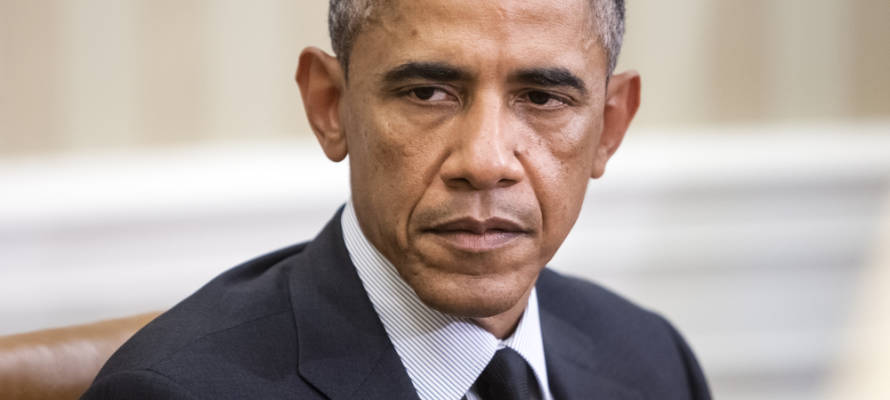Since President Obama took office, his foreign policy has been considered by many to be appeasement toward the Muslim world, regardless of how radical those regimes may be.
“Death to America” is an anti-American political slogan and chant that can still be heard in the streets of Tehran. It was popularized by Ayatollah Khomeini, the first leader of the Islamic Republic of Iran, since the 1979 Iranian Revolution. November 4th of every year is “Death to America Day” commemorating the seizure of the US Embassy in Tehran in 1979 where 52 American diplomats and citizens were held hostage for 444 days.
Iran’s disdain for the US intensified during the Carter Administration and continued to grow throughout the 1980s. Upon the conclusion of the Iran-Iraq war in 1989-1990, President George H.W. Bush and his administration made a strategic error that the US would pay dearly for – aligning themselves with “the enemy of my enemy.” They sought to create an alliance with none other than Iraqi leader Saddam Hussein, ignoring that at his very core, Saddam was a rogue, radical, imperialistic megalomaniac whose anti-US ideology was what started the Iran-Iraq war to begin with. President Bush chose to believe that the enemy of my enemy was his friend – or at least a potential ally.
This gargantuan mistake led to a deal with Baghdad in which the US enhanced Iraq’s strategic capabilities through an intelligence-sharing agreement, supplying them with sensitive dual-use systems and extending $5 billion in loan guarantees. Dealing with rogue leaders the likes of Saddam, however, emboldens them to materialize their maniacal, expansionist tendencies, such as invading Kuwait, without fear of repercussions. In the final analysis, the first Gulf War in Iraq resulted in a hefty price tag to the US taxpayer of $1.25 trillion, 4,500 US military fatalities, a surge of anti-US Islamic terrorism and a dramatic destabilization of the Persian Gulf.
Since President Obama took office, his foreign policy has been considered by many to be appeasement toward the Muslim world – regardless of how radical the regimes may be – in the hopes that once they are sitting on his side of the table, their approach may change. After identifying ISIS as an enemy, it appears he has been persuaded by the same logic that George H.W. Bush had bought into 25 years ago – the enemy of my enemy must be my friend – ignoring Iran’s unabashed, repeated threats of wiping Israel, the US’s closest ally, off the map and then moving on to the “Big Satan.”
Indeed, as Israeli Prime Minister Benjamin Netanyahu stated at his historic address to the US Congress on Tuesday, regarding Iran, “the enemy of your enemy is your enemy.”
It is clear that Iran’s intentions are not for the “peaceful use of nuclear power,” as it claims. Energy experts have all proven that Iran has at least 300 years’ worth of natural gas and oil reserves. They do not need nuclear power plants – they have plenty of natural energy to export to the world. They continued to enrich and reprocess uranium even when there was a standstill agreement – and they insist on this in order to maintain a nuclear infrastructure. It stands to reason that the purpose of this infrastructure is to produce a nuclear weapon.
In his recent State of the Union Address, President President Obama said he has halted Iran’s progress toward a nuclear weapon. Is that accurate? One week before the State of the Union, Iran announced that it will build two new reactors. Each time Iran failed to meet deadlines, the White House extended them. The International Atomic Energy Agency reported that Iran is still feeding uranium hexaflouride gas into the centrifuges in reactors that were supposed to have been shut down. Iran also continues to develop intercontinental ballistic missiles (ICBMs) – you don’t do that for conventional warfare purposes. Iran continues to pursue nuclear weapon designs.
It seems that despite the fact that Iran is negotiating in bad faith, the Obama administration is determined to make a deal with Iran.
I shudder to think what the final price tag of such a deal would be.
Opinion Piece by David Zeit
Executive Director, United with Israel

